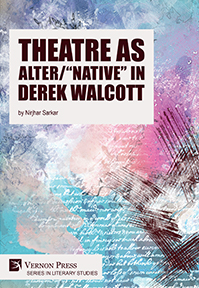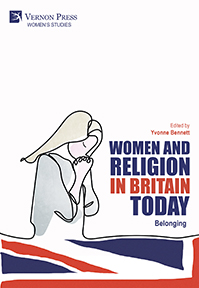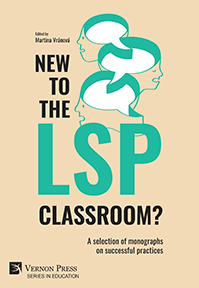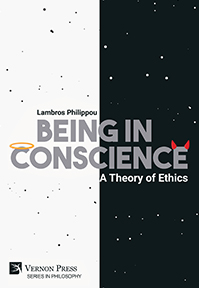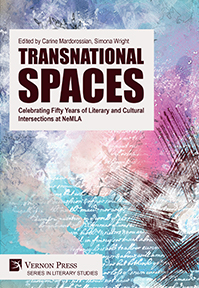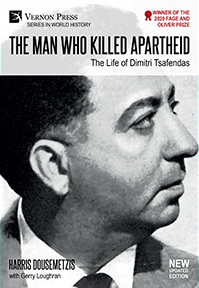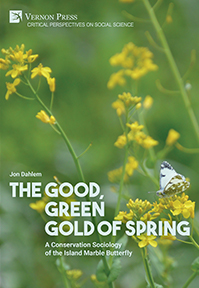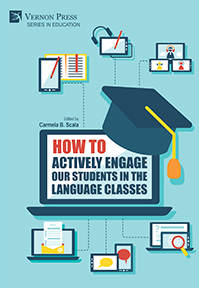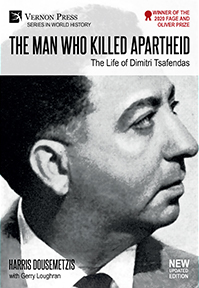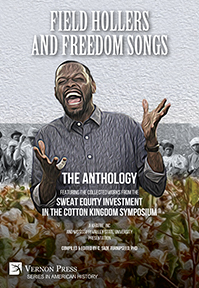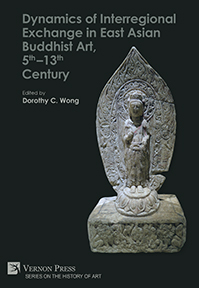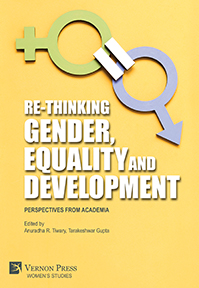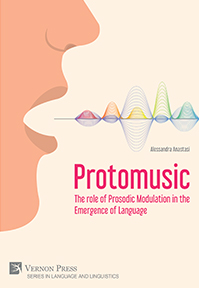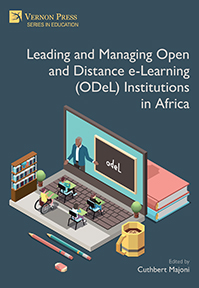Search
Browse
by Publication status
by Subject
Anthropology (26) Art (126) Business and Finance (27) Cognitive Science and Psychology (56) Communication and Journalism (49) Economics (63) Education (70) History (150) Human Geography (22) Interdisciplinary (43) Language and Linguistics (135) Law (16) Music Studies (19) Philosophy (162) Political Science and International Relations (104) Sociology (317) Statistics and Quantitative Methods (21)by Series
Series in Literary Studies (68) Series in Philosophy (59) Series in Education (54) Series in Sociology (45) Bridging Languages and Scholarship (33) Series in Politics (32) Series in World History (32) Series in Language and Linguistics (25) Series in Philosophy of Religion (22) Cognitive Science and Psychology (21) Series in American History (20) Series in Art (19) Critical Perspectives on Social Science (18) Series in Cinema and Culture (16) Series in Critical Media Studies (16) Curating and Interpreting Culture (15) Series on the History of Art (14) Economics (14) Series in Anthropology (13) Series in Business and Finance (13) Series in Music (12) Series in Communication (9) Series in Performing Arts (9) Philosophy of Personalism (8) Series in Law (8) Series on Climate Change and Society (8) Series in Economic Methodology (7) Women's Studies (7) Classics in Economics (6) Series in Economic Development (6) Philosophy of Forgiveness (5) Series in Built Environment (5) Series in Economic History (5) Series in Philosophy of Science (5) Series in Social Equality and Justice (5) Series on the History of Science (4) Serie En Estudios Literarios (3) Serie en Sociología (3) Series in Contemporary History (3) Series in Creative Writing Studies (3) Series in Design (3) The Interdisciplinary Built Environment (3) Serie en Comunicación y Medios (2) Serie en Historia (2) Serie en Música (2) Series in Heritage Studies (2) Series in Innovation Studies (2) Series in Philosophy of Race (2) Serie en Ciencias Políticas (1) Serie en Entorno Construido (1) Serie en Estudios Culturales (1) Serie en Filosofía (1) Serie en Filosofía de la Ciencia (1) Serie sobre Cambio Climático y Sociedad (1) Series in Classical Studies (1) Series in Economics of Technological Change (1) Series in Urban Studies (1)by Language
English Spanishby Author
Theatre as Alter/"Native" in Derek Walcott
Nirjhar Sarkar, Raiganj University, India
Availability: In stock
179pp. ¦ $55 £40 €46
'Theatre as Alter/“Native” in Derek Walcott' attempts a close and detailed politico-aesthetic analysis of his major plays. At the core of this book lies the attempt to answer the question of how postcolonial artists and intellectuals have dared to imagine radically different ways of living in the face of oppositional, binary choices. And as the title suggests, Walcott’s plays carve out critical spaces for new narratives of “becoming” and alternative priorities, entangled in contesting identities inscribed by race, language and ethnicity. Theatre, as Walcott knew, would be instrumental in demystifying Caribbean “Absence” and “Void” and generating an alternative version of dominant reality. By a deliberate unseating of the Western texts, filled with banal stereotypes and their representational biases, and by triggering “re-action” to the scripts of the colonizers in profoundly paradoxical ways, Walcott’s plays affirm the Caribbean identity. This study seeks to demonstrate how his plays open an alter/“native” universe in terms of aesthetics, dramaturgy and the performative, and reclaims ‘New World’ identity in terms of negotiation rather than negation—undermining the claim of “solid”, “authentic” culture. Placing the arts at the forefront of nation-building, Walcott situated his plays at a crucial juncture between the passing of the Empire and the newly-born Federation in his archipelago.
Women and Religion in Britain Today
Belonging
Edited by
Yvonne Bennett, Canterbury Christ Church University
Availability: In stock
218pp. ¦ $87 £72 €82
Little is written about the lived religious lives of women in 21st-century Britain. The authors of this book seek to address this gap by exploring contemporary women’s spirituality in Britain. As the authors inhabit different academic fields, we bring together an interdisciplinary collection of voices to address this subject. We examine a range of ways in which religion continues to impact the lives of women in Britain today. The chapters of this book examine the manner in which religion and spirituality continue to impact women’s lives, and by doing so, we offer a heterogeneous look at religion in the 21st century. We not only tackle the spirituality of our research participants but, by writing about our experiences as ‘women being spiritual’, we offer a hybrid academic-practitioner viewpoint. From Islamic marriage laws to the ordination of female Anglican clergy, we focus on the concept of belonging (or not) through culture and the use of female-only spaces and organisations. Belonging is an important social motive; the need for acceptance and belonging is a fundamental concept that drives behaviours. Exploring how we belong grants an understanding of how choices are made, both by the individual and the group.
New to the LSP classroom? A selection of monographs on successful practices
Edited by
Martina Vranova, Brno University of Technology, Czech Republic
Availability: In stock
262pp. ¦ $87 £72 €83
As Languages for Specific Purposes have always been defined as student-oriented, the rationale behind this volume is to use the rather neglected niche of the other necessary agent of language instruction and thus focus on the LSP practitioner. This turn towards the instructor has been motivated by the fact that a great number of LSP practitioners enter their jobs without previous expertise. They lack LSP education, or they may not even have a background in applied linguistics. This motivation has proven valid as many of the volume’s contributors have faced this particular situation in their professional lives. For insights into the LSP field and guidelines on the best practices, they must rely on their colleagues who offer to share their experience through workshops, conferences, or papers, which is what this volume provides. The primary goal of this volume is to present considerations of what challenges LSP practitioners face and should be prepared for in their jobs and to provide practice-tested methodological guidelines on such demanding teaching techniques as blended and flipped learning or tandem learning. All papers have been written by LSP practitioners and researchers in higher education. Thus, this volume provides both guidance and self-reflection. In other words, it is written by experienced LSP practitioners for aspiring LSP practitioners about how they see themselves and what effort they make to meet the challenges of their jobs. As proof that LSP practice is a global challenge, papers have been collected from many European countries, the USA, Uruguay. Even though most papers are naturally concerned with English, being the lingua franca of today, the collection also features guidelines for teaching Spanish, French and Dutch for specific purposes. Moreover, the target disciplines these languages are taught for encompass business, engineering, sociology or medicine, thus supporting the assumption of the universal character of problems LSP practitioners deal with.
Being in Conscience: A Theory of Ethics
December 2022 / ISBN: 978-1-64889-533-3Availability: In stock
218pp. ¦ $74 £58 €69
This book aims to suggest a worldview departing from an articulation of a theory of conscience. It analyses the constitutive parts of conscience, a concept that has not been thoroughly examined and analysed in the discussions on ethics. Having the mechanisms of production of conscience as a point of reference, the book proceeds to discuss the concepts of subjective and collective evil. The concept of being in enhanced conscience aims to position the subjective conscience in human historicity. Based on the analysis of the roots of conscience, the subject is placed in the public sphere from the point of view of its corporeal harmony and disharmony as the conditions for its binding with the institutions and the spirit of a worldsphere. The book then expands its scope by addressing the question of what makes a worldsphere functional and dysfunctional. This analysis is useful for scholars who are interested in the deep structural conditions that produce and sustain a liberal democratic state. Through the analysis of inner-worldly and inter-worldly temporality, the mode of the creative rhythm is depicted by underlining the creative divergence that occurs not only within distinct worlds but also between worldspheres. The mediation of this analysis introduces the concept of planetary functionality whereby what is at stake is the islands of functionality that serve the survival of an interconnected world. The theory of conscience is applied also to the analysis of the state and of the economy. Conscience is also identified with the properties attributed to God, suggesting a new understanding of the meaning of religion and its role in human historicity. Finally, it argues that we should understand the future as the future of conscience that can function as the only motor of historical evolution.
Transnational Spaces: Celebrating Fifty Years of Literary and Cultural Intersections at NeMLA
Edited by
Carine Mardorossian, University of Buffalo
and Simona Wright, The College of New Jersey
Availability: In stock
144pp. ¦ $66 £56 €63
This volume celebrates fifty years of NeMLA’s important presence in the world of academia with a collection of essays that adopt a transnational critical lens. With the present selection, we intend to add our voices to the ongoing debate centered on the renegotiation of space, national, and cultural geographies; to foster both the re-thinking of language(s) and literature(s) not exclusively in English and the study of race, gender, sexuality, and class within and across national boundaries. Most pertinently for this collection, we hope to add meaningful material to produce new theoretical paradigms and to rethink the role and significance of the humanities in today’s world. In this light, 'Transnational Spaces: Celebrating Fifty Years of Literary, Cultural, and Language Intersections at NeMLA' offers a contribution to the study of our present, transnational condition, from the point of view of an organization, the 'Northeast Modern Language Association', that since its inception in 1969, has sought to provide a space of encounter, debate, and open intellectual exchange for all its members as well as for the academe at large. The essays contained in this volume emphasize the interdependency and interrelations engendered by the globalized world in which we live, highlighting the possibility to create new knowledge and forms of understanding across the boundaries of nationhood and region. At the same time, they remind us that the present situation calls for a radical self-examination of a history of systemic racism which continues to produce episodes of police brutality, rationalizes cultural and economic exclusion, and normalizes the incarceration of African Americans and “illegal” immigrants, including children and minorities. In this light, with this volume, we hope to have provided inclusive, egalitarian, and cosmopolitan spaces of encounter, exchange, and interrogation.
Socializing Militants: How States End Asymmetric Conflict with Non-State Militants
Jeremiah Rozman, Association of the United States Army
Availability: In stock
518pp. ¦ $86 £68 €80
The twentieth and twenty-first centuries have seen states engaged in long-term conflicts with asymmetrically weaker non-state actors (NSA). States aim to end these conflicts as quickly as possible by combining force and diplomacy to socialize these militants—meaning give them the characteristics of states—in order to make a credible bargain achievable. The militant’s characteristics determine the state’s optimal strategy. In times of conflict, politicians and pundits often march out an oft-cited phrase in support of negotiations: “if you want to make peace, you don't talk to your friends. You talk to your enemies.” This is only possible when the opponent is willing to make peace under acceptable terms and able to enforce abidance. Some opponents have an ideologically driven fundamental purpose that precludes renouncing violence under terms that a state could accept. Others have reasonable demands and are structured in a way that allows productive negotiations. In other cases, the non-state militant is not yet the type that can be bargained with but can be socialized into this type through a state’s correct application of force and diplomacy. I call this “socialization logic.” I argue that optimally, states tailor their strategy to socialize with their opponent, to make it possible to successfully negotiate peace. In practice, the state’s strategy is often distorted by its internal and external constraints. Socialization logic provides a novel typology of non-state militants based on how well interstate conflict bargaining concepts can be applied to them. It looks beyond tactics, to systematize a framework for understanding how leaders tailor strategy towards non-state opponents based on their characteristics. Socialization logic examines the NSA type as endogenous to the strategy that the state employs and provides a framework for leaders to design a strategy to end the conflict. Finally, socialization logic synthesizes critical NSA attributes (ideology, leadership structure, and governance function) and the state’s strategy (distorted by constraints) into in an interactive model. Through 41 interviews, primary and secondary source data, I analyze the United States’, Russia’s and Israel’s asymmetric conflicts with militants and demonstrate that socialization logic most comprehensively explains their strategies throughout those conflicts.
Rethinking Islamism beyond jihadi violence
Fighting ideas leaving the sword aside
Edited by
Elisa Orofino, Anglia Ruskin University (ARU)
Availability: In stock
410pp. ¦ $97 £80 €91
For several years now, Islamism has been associated with 'jihadism' and violent extremism both in academia and in contemporary political debates. However, this association can be misleading: Islamism has much deeper roots than 'jihadi terrorism' and it stands as a powerful and complex ideology inspiring thoughts, actions and groups all over the world. Emerging as a protest-for-justice ideology claiming freedom against Western colonisation of the Muslim world, Islamism has triggered both individuals and groups worldwide since the early 1900s. Almost as a sacred ideology – based on the need to revive Islam as the only saving grace for Muslims around the world – Islamism started to be widely associated with 'jihadism' after 9/11. Before then, Islamism was not automatically related to terrorism but to resistance. Given that terrorists are only a small and definite portion of Islamists, this volume aims to re-focus research on Islamism beyond 'jihadism' by collecting relevant contributions on Islamist but non-violent organisations. More precisely, this volume innovatively contributes to current academic debates by exploring the origins of Islamism and the differences between 'jihadism', the evolution of Islamism over time and places and the role played by the most influential non-'jihadist' Islamist organisations active today as powerful non-state actors.
The Essentials of Husserl: Studies in Transcendental Phenomenology
V. C. Thomas, Centre for Phenomenological Sciences, India; Pondicherry University, India
Availability: In stock
224pp. ¦ $61 £45 €52
Known as the founder of the phenomenological movement, this book examines Husserl’s various phases of phenomenology during his realist, transcendental, static, genetic, and post-Crisis (of European Sciences) periods. Consisting of ten carefully researched and thoroughly examined essays, this book describes Husserl’s concepts and ideas through numerous examples and diagrammatic representations, in a bid to elucidate the nuances of phenomenology for its readers. Valuable insights into Husserl’s realist phase are made in the chapter on Meaning, and the chapters on Natural Attitude, Epoché and Phenomenological Reduction, while the chapter on Noesis & Noema symbolizes the transcendental phase. Thomas points out Husserl’s transition from static to genetic phenomenology in the chapter on Lived Body, with the chapters on Lifeworld, and the Notion of the Other, later focusing on this perspective. Husserl’s entire phenomenological space, including his pre-phenomenological period, are covered in the chapter on Lived Time. However, the chapters on Phenomenology: The Study of Self and Beyond, and Consciousness and Intentionality are the fulcrums upon which the edifice of phenomenology turns. The final chapter on Presuppositionlessness in phenomenology expresses Thomas’ personal enquiries into Husserl’s contention that phenomenology is a presuppositionless science. This book will be of particular interest to research scholars and post-graduate students in the areas of Philosophy and Social Sciences, as well as those interested in contemporary Western Philosophy, and the history and development of Ideas.
The Man who Killed Apartheid: The Life of Dimitri Tsafendas
New Updated Edition
Harris Dousemetzis, University of Durham
and Gerry Loughran
Availability: In stock
520pp. [Color] ¦ $89 £74 €84
On 6 September 1966, inside the House of Assembly in Cape Town, Dimitri Tsafendas fatally stabbed Hendrik Verwoerd, South Africa’s Prime Minister and so-called “architect of apartheid.” Tsafendas was immediately arrested, and before the authorities had even questioned him, they declared him a madman without any political motive for the killing. In the Cape Supreme Court, Tsafendas was found unfit to stand trial on the grounds that he suffered from schizophrenia and that he had no political motive for killing Verwoerd. Tsafendas spent the next 28 years in prison, making him the longest-serving prisoner in South African history. For most of his incarceration, he was subjected to cruel and inhumane treatment by the prison authorities. This new updated edition contains all the developments regarding the Tsafendas case after the publication of the book's first edition.
The Good, Green Gold of Spring: A Conservation Sociology of the Island Marble Butterfly
Jon Dahlem, Bellevue University
Availability: In stock
168pp. ¦ $52 £41 €49
This book presents a case study of Island Marble Butterfly (IMB) conservation from an environmental sociological perspective. Using qualitative methods, the study explicates various social components of a collaboration of stakeholders working together to protect the species from extinction. Rediscovered in 1998 after being presumed extinct for nearly a century, the IMB persists exclusively among the San Juan Islands, WA, where the efforts of scientists, local conservationists, government employees, and non-profit organizations have sustained the species, even achieving a listing under the Endangered Species Act. For these reasons and many others, the IMB presents a case in some ways fascinating for its idiosyncrasies and in other ways indicative of broader trends in conservation work in an era of rapid global biodiversity loss. From the study emerges a call for increased sociological research that contributes knowledge beneficial to conservation practice, or what the book calls “conservation sociology.” The book reviews existing literature in this space and provides a framework for constructing research, theory, and application in conservation sociology. As the social components of IMB conservation are explored, so too are components of conservation sociology. The book describes competing norms and beliefs among IMB stakeholders, demonstrating the capacity of conservation sociology to describe and interpret social phenomena in conservation work; explores power dynamics in the collaboration, using sociological theory to interpret significant events in IMB conservation; and analyzes the significance of time in IMB conservation while providing suggestions for applied conservation work based in sociological perspectives. The book accomplishes three main goals. First, it provides an account of details and events in Island Marble Butterfly conservation. Second, it defines, positions, and develops conservation sociology. Third, it demonstrates original research in conservation sociology, resulting in a deep look at the complexities of the social components of species conservation.
How to Actively Engage Our Students in the Language Classes
Edited by
Carmela B. Scala, Rutgers University
Availability: In stock
204pp. ¦ $69 £57 €65
In a world that moves at a speed that only a few years ago seemed impossible to achieve, our students are used to having the universe at their fingertips and breathing technology. As educators in the 21st century, we need to understand its impact on society, especially on our students’ learning experience, and find a way to make it work to our, and most importantly, their advantage. This edited volume presents some inspiring research in second language acquisition, focusing on active learning, cooperative and collaborative approach, and other innovative strategies to engage the students and promote learning.
The Man who Killed Apartheid: The Life of Dimitri Tsafendas
New Updated Edition
Harris Dousemetzis, University of Durham
and Gerry Loughran
Availability: In stock
520pp. ¦ $74 £59 €69
On 6 September 1966, inside the House of Assembly in Cape Town, Dimitri Tsafendas fatally stabbed Hendrik Verwoerd, South Africa’s Prime Minister and so-called “architect of apartheid.” Tsafendas was immediately arrested, and before the authorities had even questioned him, they declared him a madman without any political motive for the killing. In the Cape Supreme Court, Tsafendas was found unfit to stand trial on the grounds that he suffered from schizophrenia and that he had no political motive for killing Verwoerd. Tsafendas spent the next 28 years in prison, making him the longest-serving prisoner in South African history. For most of his incarceration, he was subjected to cruel and inhumane treatment by the prison authorities. This new updated edition contains all the developments regarding the Tsafendas case after the publication of the book's first edition.
Behavior Analytic Approaches to Promote Enjoyable Mealtimes for Autistics/Individuals Diagnosed with Autism and their Families
Edited by
Joseph H. Cihon, Endicott College; Autism Partnership Foundation et al.
Availability: In stock
396pp. ¦ $96 £79 €90
It has been estimated that 70% to 90% of individuals diagnosed with autism spectrum disorder (ASD) experience mealtime challenges (Volkert & Vaz, 2010). Most approaches to the treatment of mealtime challenges have focused on decreasing interfering mealtime behaviors through escape extinction (i.e., requiring consumption of food prior to meal termination) and other approaches that may be perceived as punitive by parents, individuals diagnosed with ASD, and other stakeholders. In recent years, there has been an increase in research on promoting enjoyable mealtimes for individuals diagnosed with ASD and their families. The purpose of this edited book is to provide a comprehensive review of these approaches for improving mealtime behaviors for individuals diagnosed with ASD, provide clinical recommendations for improving mealtime behaviors, and identify areas for future research.
The Complex City: Social and Built Approaches and Methods
Edited by
Caroline Donnellan, Boston University; Global Programs, London, UK
Availability: In stock
226pp. ¦ $88 £73 €83
'The Complex City: Social and Built Approaches and Methods' explores different ways of understanding the city. The social city approach proceeds from the ground-up, it focuses on human interactions shaped by economic and environmental processes. The built city method looks through a top-down lens, examining policy and planning for buildings and infrastructure, including utilities and energy networks. This volume is different from other city anthologies in that it explores them through their differences, by presenting each chapter in one of the two categories. While there is invariably an overlap between the two areas, they are distinct positions. In doing so the book identifies how, despite their often adversarial approaches, they both belong to the same city. As essential components of the city they should not necessarily be resolved, as it is in this friction where creativity and innovation happens. 'The Complex City: Social and Built Approaches and Methods' is concerned about the ideas and solutions that they both offer. The book’s originality stems from this duality, and from its recognition that cities are living, organic, protean places of opportunity, crisis, conflict and challenge. The chapters demonstrate the complexity of cities as a set of ideas concerning what they engender, how they function and why they continue to act as a catalyst for different kinds of human activity. They explore issues of socio-political import and questions of the city as a physically constructed space. The themes are diverse and include the inception of the city as a place of competition to centres of regeneration and urban withdrawal. They cover a range of city and urban regions from Athens to Wellington from site specific singular perspectives to comparative assessments. The questions they raise include how do we inhabit urban areas, how do we make plans for them, and how do we, at times, ignore them entirely.
Field Hollers And Freedom Songs: The Anthology
Featuring the collected works from the Sweat Equity Investment in the Cotton Kingdom Symposium
Edited by
C. Sade Turnipseed, Khafre, Inc ; Mississippi Valley State University, USA
Availability: In stock
293pp. ¦ $77 £61 €67
Taking place annually in “the most southern place on earth,” aka, the “Cotton Kingdom,” the Sweat Equity Investment in the Cotton Kingdom Symposium offers a platform to honor, celebrate, and recognize the legacy of the African Americans who labored in the cotton fields of the Mississippi Delta. The symposium intends to trigger discussions and provide a space where the histories and contributions of those Americans can be heard and learned from. Born in the antebellum south, the “soul of America” came to be through the tearful occupation of planting, chopping, picking and ginning cotton, where it was then brined within a system of enslavement, sharecropping and international trade that in so many ways provided America its “greatness.” Carefully compiled from works presented at the symposia, this anthology looks to expose the tortured “cotton-pickin’ spirit” embedded in America’s soul. A spirit that is rendered in song, chants, spoken word and field hollers, and revealed in this volume through the selected articles, lyric poetry, proverbs, speeches, slave narratives and workshop proposals. The rich and varied content of this book reflects the uniqueness of not only the Mississippi Delta but also the histories of those who lived and worked there.
Vasile Băncilă. An ethnic-spiritualist metaphysics banned by the totalitarian regime
Ion Dur, Technical University of Cluj-Napoca, Romania; Baia Mare Northern University Centre, Romania
Availability: In stock
290pp. ¦ $76 £60 €71
This book is a rediscovery and examination of the thinking of Vasile Băncilă, a philosopher forbidden by the totalitarian regime of Nicolae Ceaușescu. The philosopher Lucian Blaga saw Băncilă as a threat to the spirit of the highest Romanian culture. It is estimated that Băncilă’s work extends to 32 volumes, 17 of which have been published so far. With such a significant opus, Vasile Băncilă is, indisputably, a key figure in contemporary Romanian culture, particularly in the sphere of philosophy. The book has eleven chapters and is divided into two parts. The first part deals with the hermeneutics of the author’s youthful works. His reflections on the purpose of philosophy for life are important, about the role of this discipline in the education of adolescents and students, the relationship between irony and education, his thoughts of one of the greatest Romanian poets, Mihai Eminescu, and the philosophy of Descartes and of Schopenhauer. In the second part, the book looks at Băncilă’s aim of structuring a possible system of philosophy; more precisely, an ethnic-spiritualist metaphysics which, when it was elaborated, contradicted the official ideology of the totalitarian regime. Finally, the book covers the philosopher’s work, analysing step-by-step the relation between the part and the whole (pars pro toto), as well as between existence and metaphysics, and the philosopher’s conclusions about Romanian existence.
Dynamics of Interregional Exchange in East Asian Buddhist Art, 5th–13th Century
Edited by
Dorothy C. Wong, University of Virginia, USA
Availability: In stock
342pp. ¦ $95 £78 €89
This volume examines the various patterns of trans-regional exchanges in Buddhist art within East Asia (China, Korea, and Japan) in the medieval period, from the fifth to the thirteenth centuries. A traditional approach to the study of East Asian Buddhist art revolves around the notion of an artistic relay: India was regarded as the source of inspiration for China, and China in turn influenced artistic production in the Korean peninsula and Japan. While this narrative holds some truth, it has the implicit baggage of assuming that art in the host country is only derivative and obscures a deep understanding of the complexity of transnational exchanges. The essays in this volume aim to go beyond the conventional query of tracing origins and mapping exchanges in order to investigate the agency of the “receivers” with contextual case studies that can expand our understanding of artistic dialogues across cultures. The volume is divided into three sections. In Section I, “Transmission and Local Interpretations,” the three chapters by Jinchao Zhao, Li-kuei Chien, and Hong Wu all address topics of transnational transmission of Buddhist imagery, their figural styles, and subsequent alterations or adaptations based on local preferences and interpretations. Buddhism had important impacts on East Asian countries in the political dimension, especially when the religion and certain Buddhist sutras and deities were believed to have state-protecting properties. The chapters by Dorothy C. Wong, Imann Lai, and Clara Ma in Section II, “Buddhism and the State,” attend to the political aspect of Buddhism in visual representation. Section III, “Iconography and Traditions,” includes chapters by Sakiko Takahashi, Suijun Ra, and Tamami Hamada that closely study the cross-border transmission of and subtle variations in iconography and style of specific Buddhist deities, notably deities of esoteric strands that include the Thousand-Armed Avalokiteśvara (Bodhisattva of Compassion).
Re-Thinking Gender, Equality and Development: Perspectives from Academia
Edited by
Anuradha Tiwary, GD Goenka University, India
and Tarakeshwar Gupta, GD Goenka University, India
Availability: In stock
270pp. ¦ $78 £61 €72
Since birth, we have been ensnared in a gendered world. Gender is so deeply ingrained in various aspects of our lives, such as social, political, legal, and economic institutions and the related actions, ideas, and aspirations, that it appears natural. As a result of gender-defined roles and experiences, gendered hierarchies get established. It is crucial to re-examine the fundamental issues of gender, equality, and development from a new perspective. In doing so, this volume puts aside what we are accustomed to and challenges some of our most fundamental assumptions and understandings. It analyses gender not as a given but as a feat, not just as the cause but also as a result, and not only as a person but also as a society, in order to expose and critique the processes that create or reassert the inevitability and naturalness of a gendered reality. The book sketches the basic understanding of gender, its construction, perception of gender, the process of identity formation and socialization, and the kind of influence gender has on society. This volume is a comprehensive resource that gives a new perspective on gender as a key organizing factor within society, it unpacks the social construction of knowledge, categories of difference, and structures of power and inequality, from the viewpoints of researchers and academicians. Researchers, teachers, students, and other groups interested in gender studies, sociology, law, history, and languages will find the book refreshingly handy in their inquiry. The book is a collection of narratives, empirical evidence, and opinion papers along with systematic literature reviews around gender, equality and development.
Protomusic: The role of Prosodic Modulation in the Emergence of Language
Alessandra Anastasi, University of Messina, Italy
Availability: In stock
186pp. ¦ $62 £50 €54
Anastasi introduces an alternative vision about language development and music involvement to the current scientific discourse. Her view is based on a rigorous evolutionary perspective, through which she not only demonstrates the hypothesis of vocal continuity with other species via morphological data but, more importantly, also demonstrates how music is first and foremost a biological and cognitive trait. The bond between animal and human communication is here interpreted as an interspecific universal with a clear evolutionary impact on the speech’s natural history. Such continuity does not undermine the species-specificity of our linguistic system and, at the same time, supports the theory according to which music had a clear evolutionary role in the inception of the prosodic and musical components of speech. In leaning towards a bio-naturalistic approach, the most convincing view is that of a vocal and functional continuity of music. This appears to be demonstrable through the evolutionary past of vocality in other animal species, not constrained from having some form of cultural transmission. The book evidences that the current research scenario on non-human animal communication benefits from the support of semiotics and, specifically, zoosemiotics. The latter approach enables us to interpret music and chant not only as a simple formal and meaningless exercise, but rather as a communicative element perceived and processed by organisms equipped with cognitive abilities. Anastasi argues that vocal continuity, made possible by biological constraints that mark its anatomical and physiological aspects, places human beings in a relationship of semiotic continuity with non-human communication forms. In turn, this enables us to better describe the phylogenetic processes which determined the development of musical behaviours in the Sapiens, as well as the way in which such behaviours interwove with the expressive vocality of the animal world.
Leading and Managing Open and Distance e-Learning (ODeL) Institutions in Africa
Edited by
Cuthbert Majoni, Zimbabwe Open University, Zimbabwe
Availability: In stock
246pp. ¦ $73 £57 €63
'Leading and Managing Open and Distance E-Learning (ODeL) Institutions in Africa' focuses on e-learning, especially in developing countries in Africa. The outbreak of COVID-19 has forced most educational institutions, including conventional institutions in higher education, to embrace e-learning as a tool to ensure that education is not paralysed but continues to thrive. However, the major challenge has been shifting focus from the conventional face-to-face mode to the e-learning mode. This calls for a change of mindset and a review of practices to ensure success in implementing e-learning. This book has 12 chapters that explore the leadership theories and approaches that influence administrative practices in ODeL institutions, as well as student support within library and information services, the complexities of student affairs, the inclusion of students with special needs, the contemporary issues of innovation and industrialisation, and effective marketing techniques for the survival and growth of tertiary institutions. It is hoped that the recipients of this book can acquire the theoretical and practical knowledge relevant to the successful implementation of e-learning.

